Top 10 DevOps Automation Tools

“Automation does not need to be our enemy. I think machines can make life easier for men, if men do not let the machines dominate them.” ~ John F. Kennedy
In today’s digital age Automation tools work as the savior for engineers. Everyone is either creating automation tools or getting automated.
Using automated tools is one of the best ways to save time, improve quality and flexibility, and enhance productivity. These tools help you to identify security threats and breaks in runtime and prevent you from wasting time in restructuring.
According to market research by a well-known organization around 35% of organizations are already using automation tools for their testing procedures and 29% have plans to implement automated strategies and tools for their products.
“The first rule of any technology used in a business is that automation applied to an efficient operation will magnify the efficiency. The second is that automation applied to an inefficient operation will magnify the inefficiency.” ~ Bill Gates
Automation plays an inseparable role in DevOps from code generation, Integration, and delivery to continuous testing and monitoring. In DevOps, operational teams started using automation for all their work which gives DevOps the wings to fly so high.
Automation is the buzzword of the development industry. The most prominent reason for this is that it is time-saving. It saves time in various ways, like when you are deploying your application to different environments. Automating deployments can save time by doing repetitive tasks, minimizing human error, or doing work in parallel.
In a typical DevOps, a code is generated on the developer’s machine then it produces some output as a result and that result is monitored throughout. Automation gives this process a kick for triggering the build and running unit test cases.
“I think one of the most interesting things about automation isn’t on the practical side. I think it’s about creating magic and wonder and moments of splendor.”
~ Genevieve Bell
The DevOps movement is all about speed, automation, and relevancy. What better way to ensure all of these things are happening than using automated tools?
DevOps Automation Tools are one of the important factors that can help you to automate and control your applications. But there are many tools available in the market which makes it difficult to find out the best tools for an organization. In this article, we will be talking about the Top 10 DevOps Automation Tools.
List of Top 10 Automation Tools
Now you must be wondering how you can use automation for DevOps. To help you with this here are the top 10 DevOps automation tools.
Automation is the top strategy for DevOps success, and automation tools are the next best thing. These tools make tasks easier, faster, and more reliable, helping to reduce errors and save time!
1- Gradle
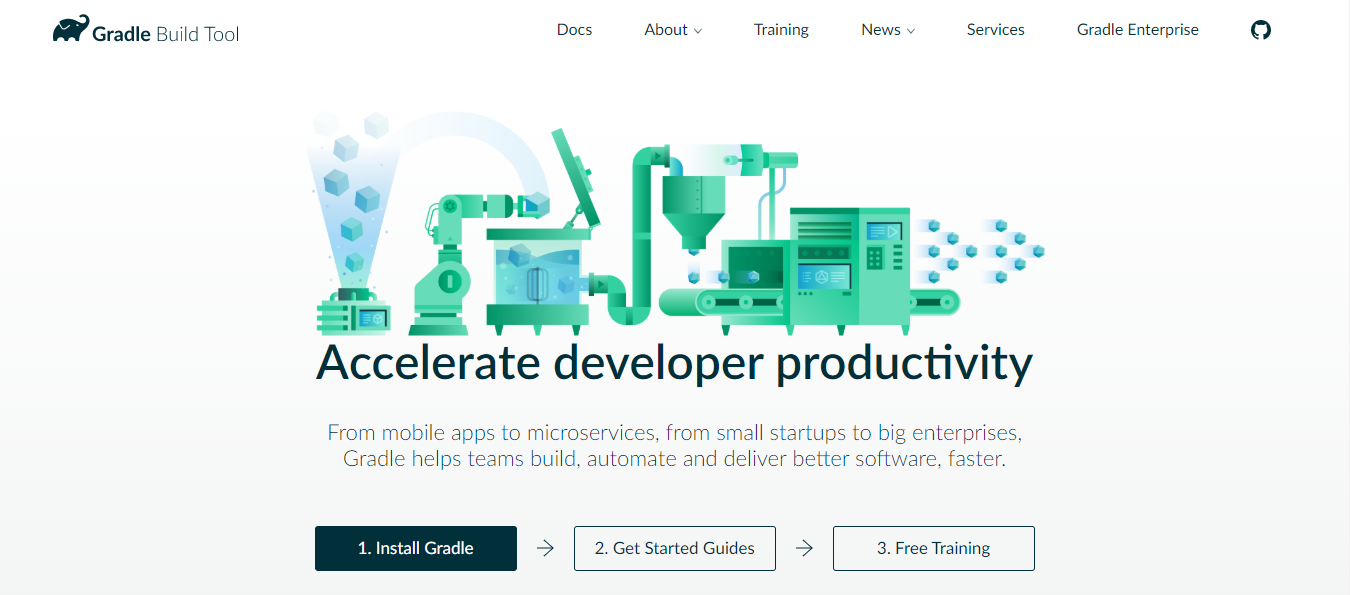
- Gradle has been counted in the top 20 open-source projects and is trusted by millions of developers.
- Build anything here either you write code in Java, C++, Python, or any other language of your choice.
- Here package is available for deployment on any platform.
- Go monorepo or multi-repo.
- One of the most versatile DevOps tools.
- Gradle provides a rich API and a mature ecosystem of plugins and integration.
- Model, integrate, and systematize the delivery of your software from end to end.
- Scale-out development with elegance and delivery faster.
- Handles from compile avoidance to advanced caching and beyond, Gradle pursues performance relentlessly
2- Git
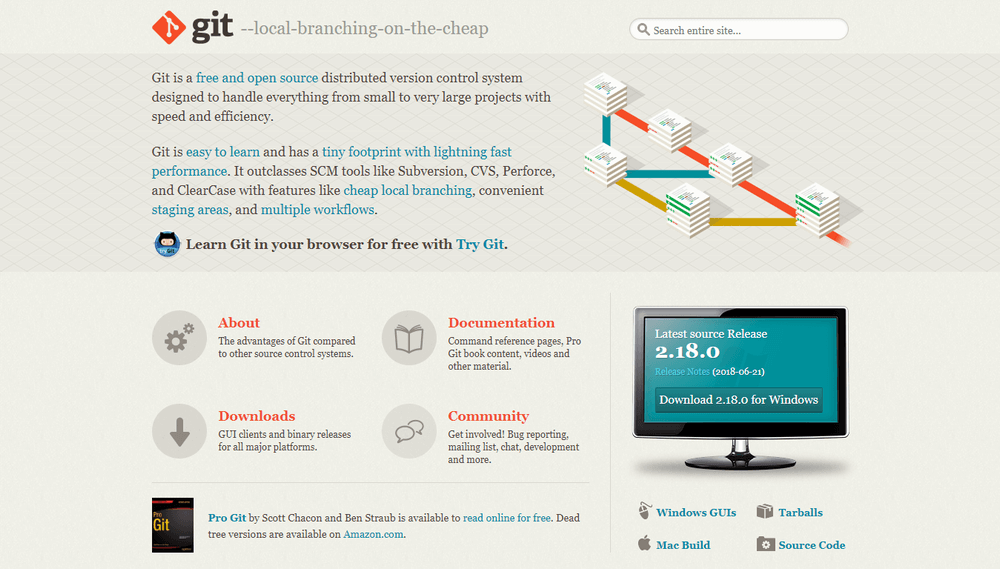
- This DevOps tool was designed by Torvald while maintaining a large distributed development project.
- Git is one of the most popular distributed SCM (source code management) tools.
- It is compatible with existing systems and protocols.
- This tool is widely used and appreciated by remote teams and open-source contributors.
- By using Git you can track the progress of your development work.
- Here you can save various versions of your source code and use these versions according to your needs.
- You can create separate branches and merge new features at the time of launch. Hence this tool is also great for experimenting.
- Git strongly supports the nonlinear and distributed development of large projects.
- It automatically accumulates garbage when enough useless objects have been created.
- Git stores newly created files in a network byte stream called ‘pack file’.
3- Jenkins
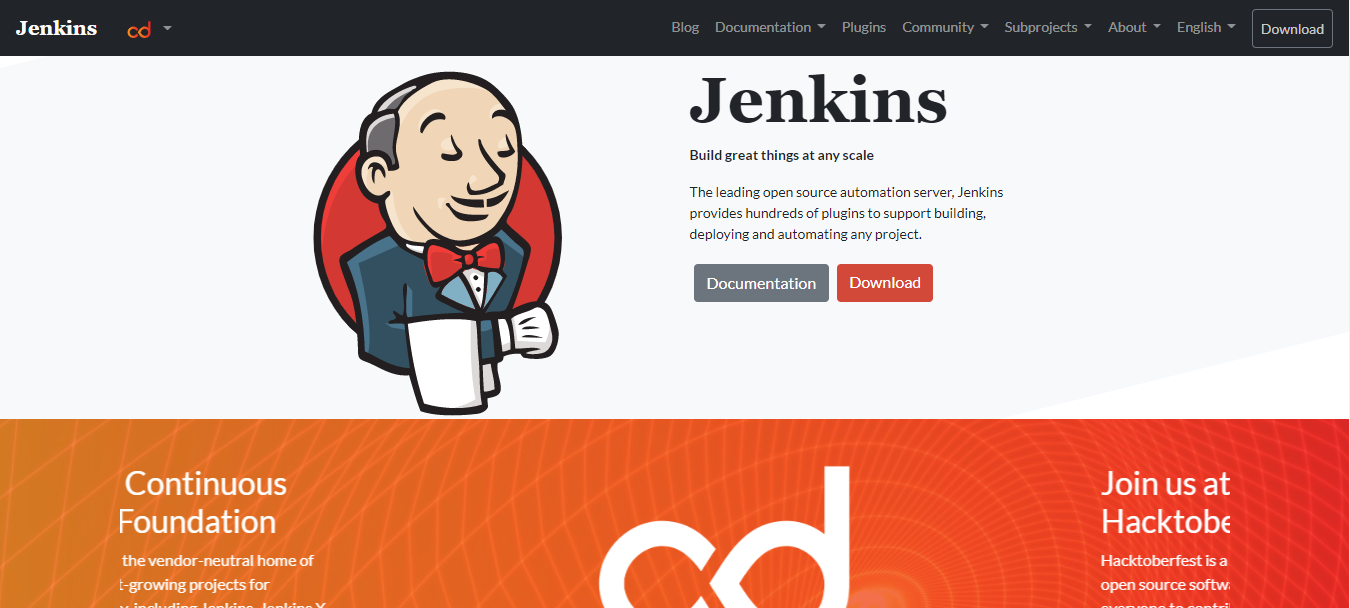
- Jenkins is a self-contained Java-based program.
- It contains packages for Windows, Mac OS X, and other Unix-like operating systems.
- Jenkins can be used as a simple CI server as well as a continuous delivery hub for any project.
- Jenkins can be easily set up and configured by its web interface.
- That includes on-the-fly error checks and built-in help.
- Jenkins integrates with practically every tool in the continuous integration and continuous delivery toolchain.
- Jenkins can be extended via its plugin architecture.
- This tool makes you able to distribute work across multiple machines, helping drive builds, tests, and deployments across multiple platforms.
4- Docker

- Docker is a set-of-platform of a service product.
- It uses OS-level virtualization to deliver software in packages called containers.
- Makes you able to run and share container-based applications from the developer’s machine to the cloud.
- It is based on Docker core building blocks including Docker Desktop, Docker Hub, and Docker engine.
- Docker hub is the world’s largest container image library.
- It scales up to 1K nodes.
- Update the app and infrastructure with zero downtime.
- Developers can quickly ramp up productivity and deliver apps to production faster.
5- SeleniumHQ
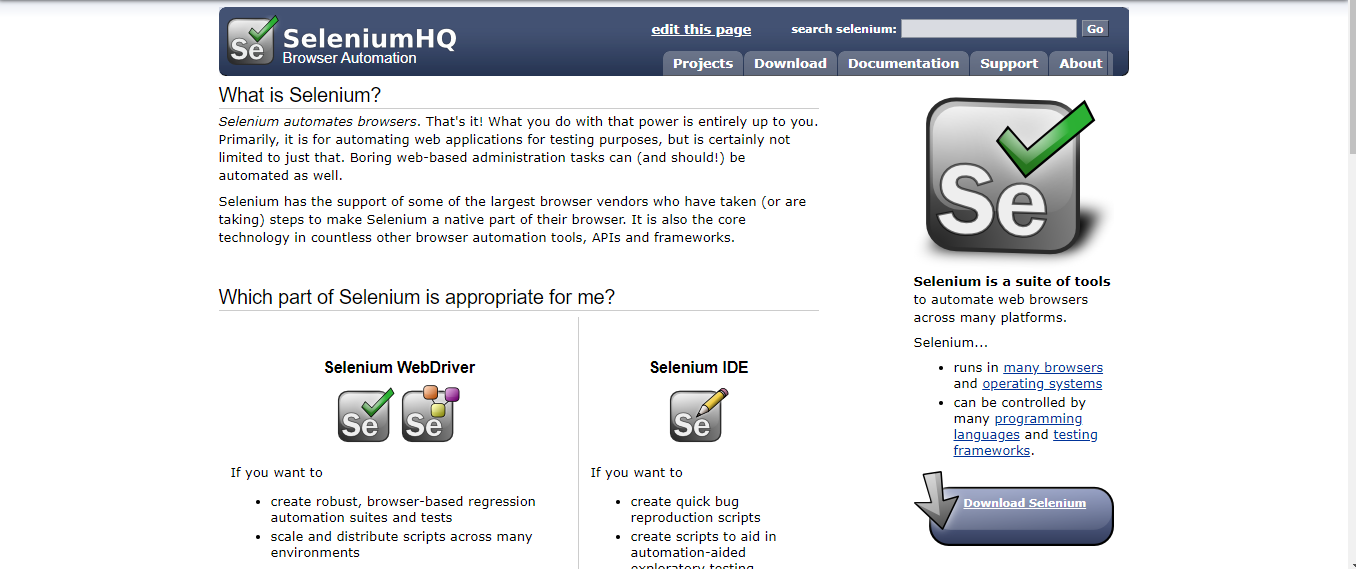
- Selenium is a browser automation tool. It is for automating web applications for testing purposes.
- It is supported by some of the largest browser vendors that make selenium a native/ part of their browsers.
- It also plays a vital role in countless other browser automation tools, APIs, and frameworks.
- Selenium WebDriver- “A collection of language-specific bindings to drive a browser- the way it is meant to be driven”.
- Selenium is used for creating robust, browser-based regression automation suites and tests.
- Its scales and distribute scripts across many environments.
- Selenium IDE- “a Chrome and Firefox add-on that will do simple record and payback of interactions with the browser“.
- It creates quick bug reproduction scripts.
6- CHEF
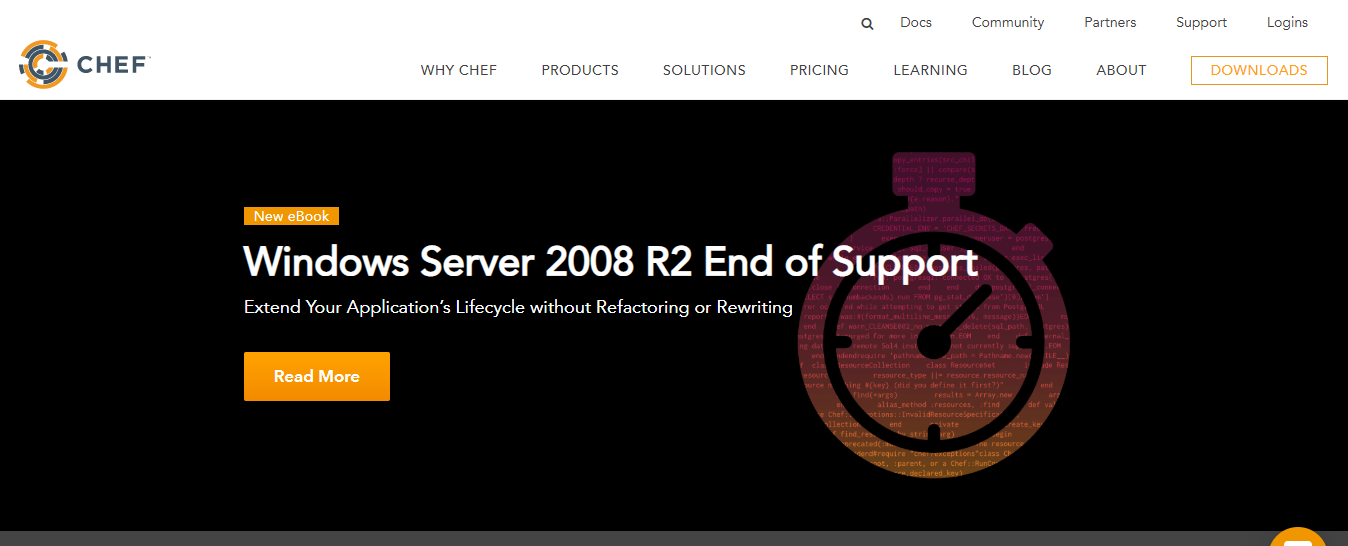
- Chef is one of the founders of the DevOps movement.
- Chefs work with thousands of innovative companies around the world.
- It delivers its vision of digital transformation by providing practices and platforms to deliver software at speed.
- Chef provides tested hardened software distributions.
- The chef maintains security and stability with patches and bug fixes for the life of the product.
- It provides an easy and quick way to get organized content to your Enterprise Automation Stack.
- With its clock feature, you can keep things running on time.
7- Ansible

- Ansible is an extremely simple IT automation engine.
- It automates cloud provisioning, configuration management, application deployment, intra-service orchestration, and many other IT needs.
- Ansible designed for multi-tier deployments since day one,
- This tool doesn’t use agents and additional custom security infrastructure, so it’s easy to Deploy.
- It is YAML in the form of Ansible Playbooks.
- Ansible works by connecting to your nodes and pushing out Ansible modules to them.
- Ansible then executes these modules and removes them when finished.
- There are no servers or databases required, your library of modules can reside on any machine.
8- Nagios
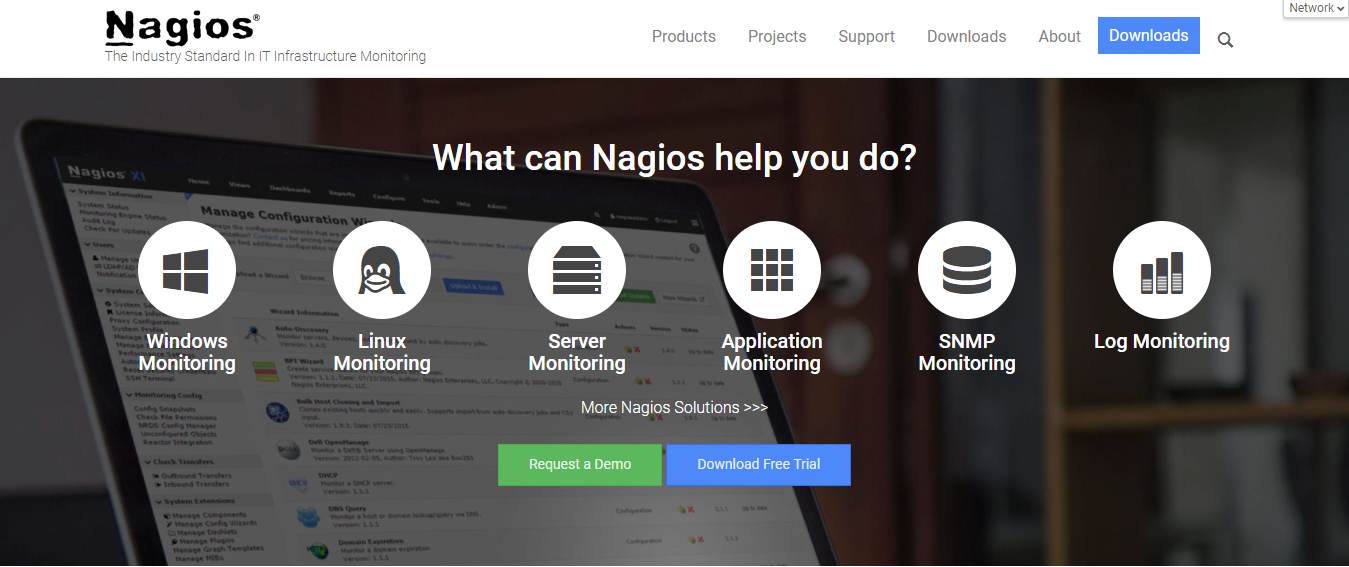
- Nagios is a well-known server monitoring software on the market.
- The flexibility, it provides to your servers both agent-based and agentless, makes it the best fit in the zone.
- There are over 5K different add-ons available to monitor your servers.
- Their effective monitoring service allows your organization to quickly detect application, service, or process problems.
- Nagios provides tools for monitoring applications and application states including-
-Windows Applications
-Linux Applications
-Unix Applications
-Web Applications - Nagios XI provides monitoring of critical infrastructure components including applications, services, operating systems, network protocols, systems metrics, and network infrastructure.
- Nagios Log Server simplifies the process of searching your log data. It notifies you when threats arise.
9- ELK

- ELK is the acronym for three open-source projects: Elasticsearch, Logstash, and Kibana.
- Elasticsearch is a search and analytics engine.
- Logstash is a server-side data processing pipeline that ingests data from multiple sources simultaneously, transforms it, and then sends it to a “stash”.
- Kibana lets users visualize data with charts and graphs in Elasticsearch.
- The Elastic Stack is the next evolution of the ELK Stack.
- It is an open-source, distributed, RESTful, JSON-based search engine.
- Popular among users because of its scalability and flexibility.
- Whether to analyze security events or freely slice and dice metrics, the worldwide community kept pushing boundaries with ELK.
10- Splunk

- Splunk brings data to every question, decision, and action.
- Accelerate innovation by acting fast.
- It helps you solve problems with a platform built for real-time data.
- Splunk amplifies your data’s impact.
- It makes data accessible and valuable to IT, security, and more.
- It grows with your needs without compromising performance from gigs to petabytes.
“Devops is not a goal, but a never-ending process of continual improvement.” – Jez Humble
In A Nutshell…
Automation is also empowering other basic code quality, coverage test cases, and security-related test cases. Automation test cases are not limited to just unit tests they included installation tests, UI tests, user experience tests, etc.
DevOps makeable the operations team to implement automation in all their activities from provisioning the servers, configuring the servers, configuring the networks, and configuring firewalls to monitoring the application in the production system.
Automating many DevOps tasks can help you to save time and money, automate repetitive tasks, and resolve deployment problems. It makes the process of releasing new features and changes much easier.
Every business needs to be on top of security and DevOps. That’s why it’s key to implement automation tools that will identify any system failures or security breaches before they happen.
Automation tools are quickly becoming one of the most valuable resources in the DevOps world. Developers and IT professionals can use automated tools to improve their time management, enhance productivity, and create consistency in code – all while doing so safely. These 10 tools can be used at any stage of the development cycle, so you will find something that suits your needs.
FAQ's
Why Automation tools are so prominent?
Automation is the buzzword of the development industry. The most prominent reason for this is that it is time-saving. It saves time in various ways, like when you are deploying your application to different environments.
How are Automation Systems helpful?
Every business needs to be on top of security and DevOps. That’s why it’s key to implement automation tools that will identify any system failures or security breaches before they happen.
Is Automation Cost-effective?
Yes, Automating many DevOps tasks can help you to save time and money, automate repetitive tasks, and resolve deployment problems.